Jun 26, 2020 | Constitutional Rights, Police Misconduct
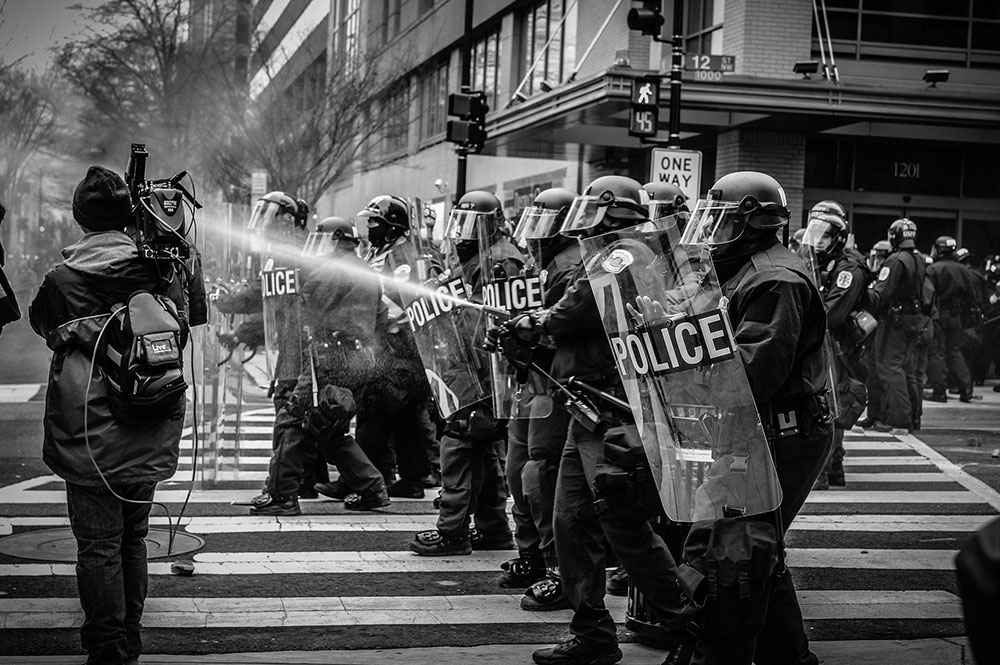
Colorado has one of the worst rates of police shootings in the country. And the record on police accountability is just as bad:
“In all but two of the 309 cases in six years, officers’ actions were legally justified by district attorneys or grand juries.”
It will increase police transparency and accountability by requiring body cameras
On or before July 1, 2023, the bill requires all law enforcement agencies in the state of Colorado to wear and use body-worn cameras during interactions with everyday people.
“A peace officer shall wear and activate a body-worn camera when responding to a call for service or during any interaction with the public initiated by the peace officer, when enforcing the law or investigating possible violations of the law.“
Not only will all officers be required to wear body cameras, but those that do can face penalties for turning off or tampering with the cameras. Also, departments will be required to release footage within 21 days after a misconduct allegation. We highly recommend that you make complaints of misconduct with the Internal Affairs Division of any police agency who you believe may have committed misconduct.
The bill limits use of chokeholds
Any type of chokehold or carotid hold will be banned unless absolutely necessary, and only when dealing with violent offenses. Officers will not be allowed to use deadly force against anyone suspected of a minor or nonviolent offense.
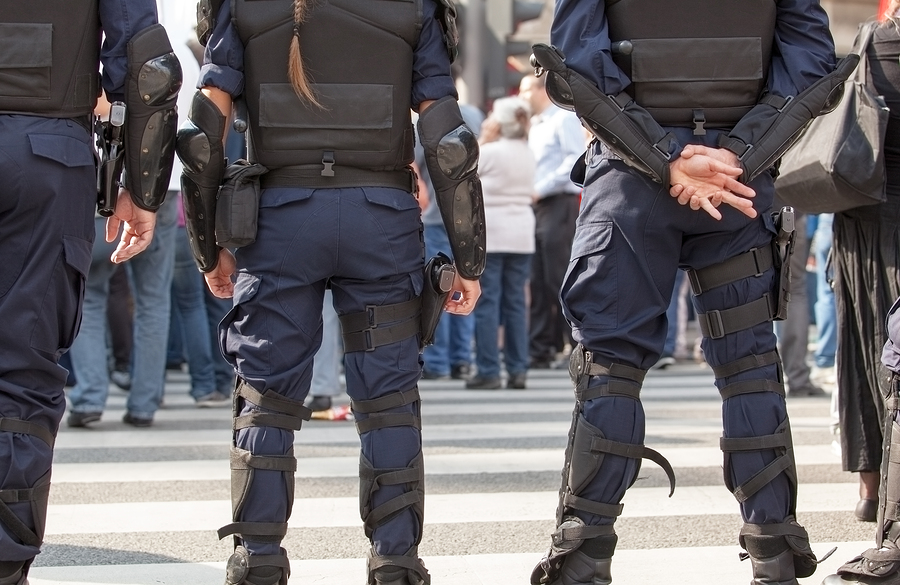
Police will be required to intervene to prevent excessive force or face new penalties for the ‘failure to intervene’
One of the biggest problems with the current system of police accountability is that supposed good cops often stand by while bad cops assault or even kill people, as was the case with George Floyd in Minneapolis. Under the new law, officers who fail to stop other officers from using unnecessary excessive force could face new charges. There are also provisions to protect those officers from retaliation when they do intervene.
New database will keep a record of police misconduct and problem police officers to improve police accountability
In the past, many officers were able to remain on the force because misconduct violations were often erased from their records after a short amount of time, eliminating any possibility for police accountability. Even for serious offenses, they could simply move to a different state and get hired by a new department. Starting on January 1, 2022, this new database will require a database entry be made for any officer who has been fired, decertified, found to have lied, or failed to follow training requirements. Also, any officer who is convicted of (or pleads guilty to) using excessive force, failure to intervene to stop excessive force, would permanently lose their Peace Officer Standards and Training board certification, which is required to serve as a peace officer in Colorado.
While the bill still leaves open a gaping loophole for officers who choose to quit amid investigation of police misconduct against them, it does require a new level of documentation so that problem officers can be identified and police accountability can be improved.
The Qualified Immunity Defense will be removed for violations of the Colorado State Constitution and officers will be made to pay
Until now, one of the biggest issues with police accountability is that officers were shielded from liability for novel ways in which they could think up or act to violate the constitutional rights of victims. Qualified immunity, under federal law, completely shields officers from liability when the same, precise, conduct has not been held to be a violation of someone’s rights in prior appellate decisions. Even worse, appellate courts could avoid making any determinations of whether an officer’s conduct violated the constitution merely by pointing to a lack of prior cases that fail to examine that exact conduct, because it had not been “clearly established,” beyond debate,” to “every police officer” before. As you might imagine, this led to a catch-22 in which officers have been let off the hook in litigation for excessive force in a whopping 57% of cases.
The new bill will allow people to file civil rights violations against officers individually for violations of the Colorado Constitution and qualified immunity may not be invoked as a defense in such state actions. Many of the same rights afforded by the federal Constitution are also enshrined in our state Constitution. Moreover, under this new law, individual officers will be forced to pay a small portion of judgments against them, instead of leaving it completely up to the city or county that employs them.
“If the peace officer’s employer determines the officer did not act upon a good faith and reasonable belief that the action was lawful, then the peace officer is personally liable for 5 percent of the judgment or $25,000, whichever is less, unless the judgment is uncollectible from the officer, then the officer’s employer satisfies the whole judgment.” (Enhance Law Enforcement Integrity bill, Colorado General Assembly)
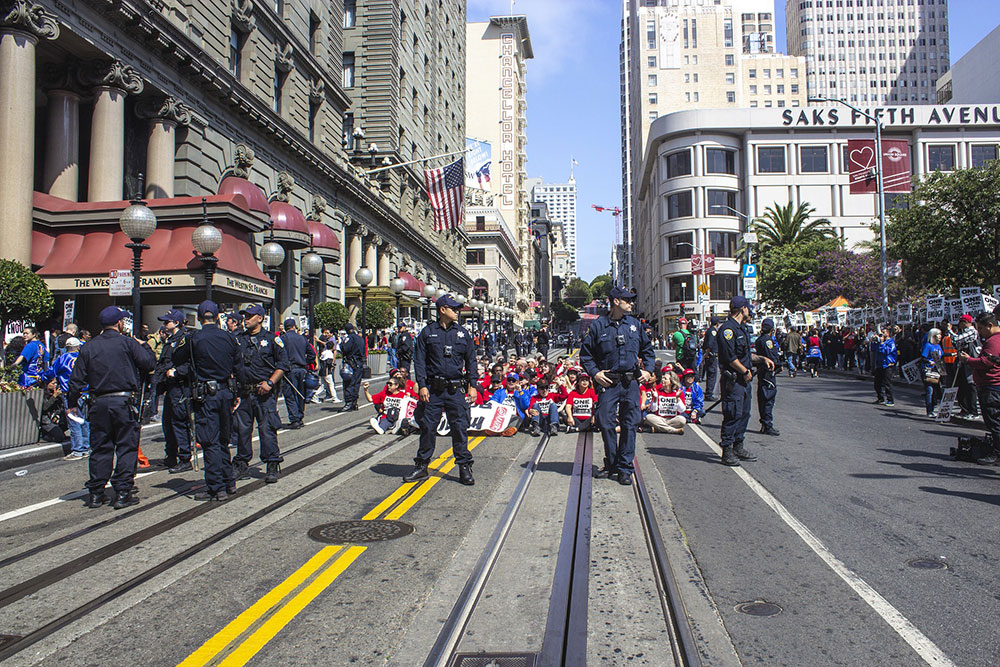
Police accountability at protests
In direct response to the recent protests in Denver, the new bill prohibits officers from using any kind of chemical irritant like tear gas or pepper spray without first sufficiently announcing it and then giving people enough time to leave and get to safety. It also prohibits them from indiscriminately firing rubber bullets into crowds, as well as specifically at people’s heads, torsos, and backs. Rubber bullets have been shown to cause serious injuries.
We are here to help if you are the victim of police misconduct or violence
If you have been the victim of police misconduct, please give us a call. We work diligently to ensure police accountability and fight those who violate your civil rights. For a free, no-obligation consultation with the Civil Rights Litigation Group, contact our Denver CO law firm today at (720) 515-6165 or use our online contact form.
May 27, 2020 | Civil Rights Law, Constitutional Rights, Police Misconduct
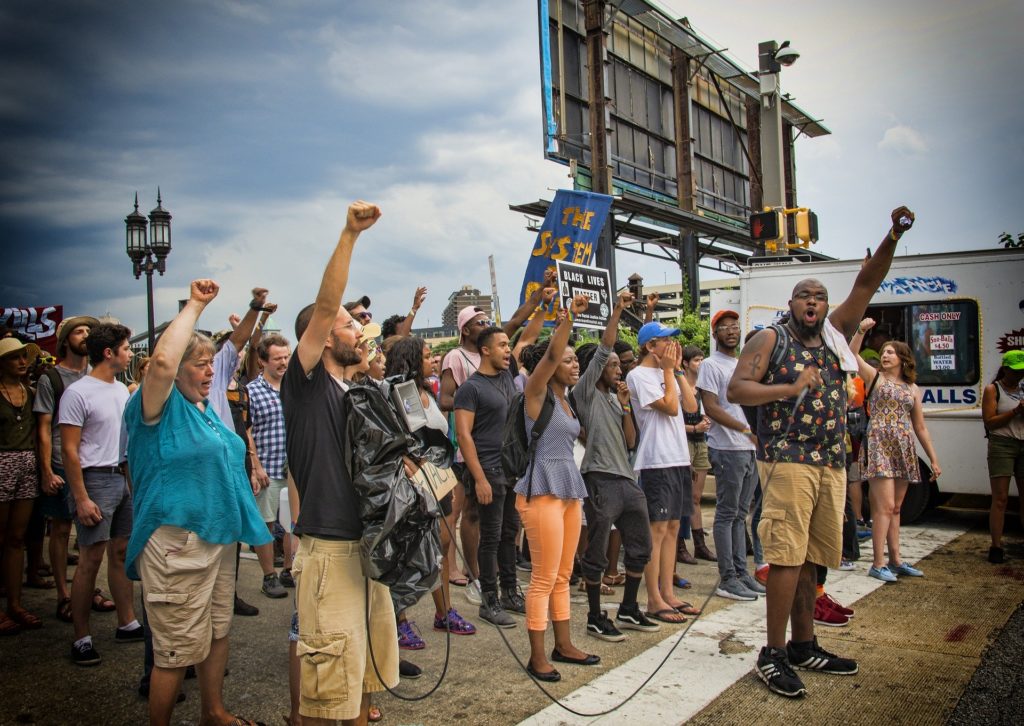 The most important thing to remember is that the First Amendment guarantees every person in America the right to peacefully assemble and protest.
The most important thing to remember is that the First Amendment guarantees every person in America the right to peacefully assemble and protest.
Congress shall make no law respecting an establishment of religion, or prohibiting the free exercise thereof; or abridging the freedom of speech, or of the press; or the right of the people peaceably to assemble, and to petition the government for a redress of grievances.
The right to protest is valued in our country and has led to many substantial changes over the past 200 years, such as the Civil Rights Act. When outrageous police abuse occurs — such as the killing of George Floyd in Minneapolis or the beating of Rodney King in Los Angeles — that conduct affects us all. Exercising your right to speak up and to protest could foster recognition, awareness, and much needed change in the future.
However, it’s important to remember that the Supreme Court has recognized limits to the exercise of our rights – when they could affect the rights of others. Just like freedom of speech doesn’t provide the right to publicly lie about someone or the right to yell fire in a crowded theater, the right to assemble does not mean that a protester has cart-blanche protection to commit otherwise illegal acts, such as vandalism, and there could be criminal repercussions for those who harm others.
Also, current law permits “reasonable time, place, and manner” restrictions by governments to limit some of the unintended adverse effects of those who gather to speak in local communities. Legal interpretations of what constitutes “reasonable” time, place and manner restrictions can be nuanced, but they usually permit municipal action to do things like restrict protesters from marching down the middle of busy streets or instituting non-discriminatory curfews to curb looting and vandalism. Protesters have more leeway regarding location and time when a protest is spontaneous, such as immediately after a major incident occurs that calls for public outcry, like the events in recent days. However, the protection for spontaneous association will likely be subject to greater “time, place, and manner” restrictions after initial protests erupt and/or after public safety concerns surface.
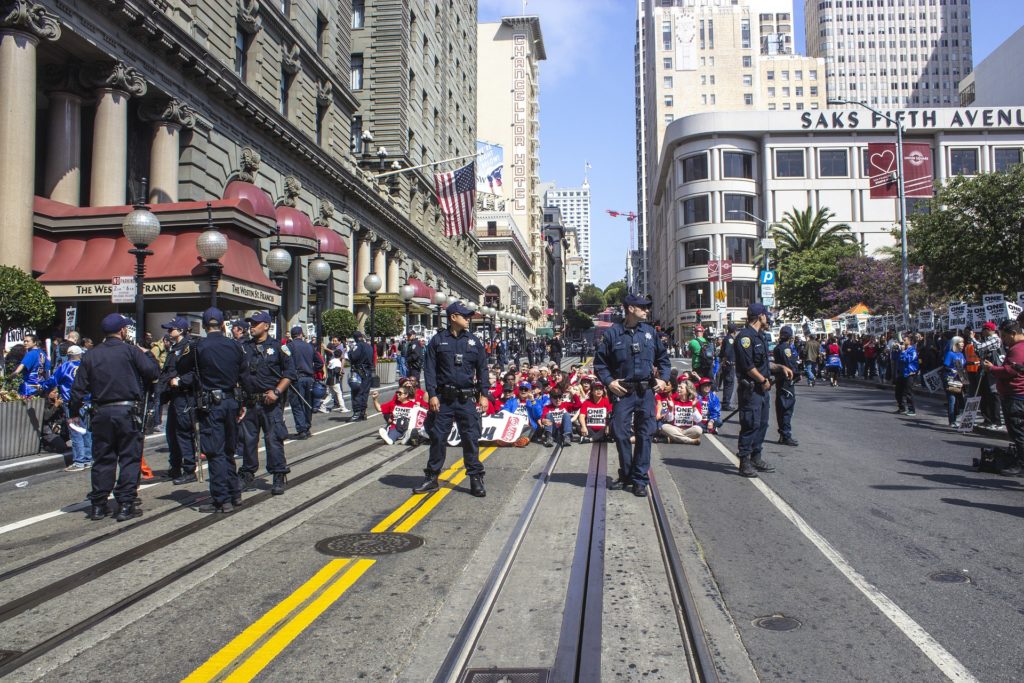
When can the police interfere with protests?
If a protest escalates to include violence and property damage, local law enforcement has the legal authority to intervene to quell that violence or to arrest perpetrators. They may also have the legal authority to stop protests on private property, those organized without a permit, or those that block public rights of way, such as on an interstate or major street.
As to the time or duration of protests, law enforcement can intervene if a curfew has been legally established and police have given you warning, time, and opportunity to safely leave. Police should act only to apply limited restrictions in a non-discriminatory and even-handed manner.
What am I allowed to record at a protest?
There have been a lot of contrary opinions written regarding what citizens can and can’t record, with respect to the police. And while some states have limits on where you can post recordings with audio, the visual part of recordings is protected by the First Amendment and can be posted online and shared.
You have a First Amendment right to record the police while they are performing public duties. As long as you aren’t interfering with or threatening them, and stay a fair distance away from officers performing official functions, the police DO NOT have the legal authority to demand that you stop recording. In fact, it’s always a good idea to record any encounter with the police if you think things might go bad for anyone involved. Phone recordings have been key in prosecuting police misconduct in recent years, especially with the quality of video that most cell phones can produce. As Will Smith said, “Racism isn’t getting worse, it’s getting filmed.”
Also, the police cannot legally demand your phone or confiscate it without a warrant, and those take time to obtain because they have to be signed by a judge. They also don’t have the authority to tell you to delete a photo or video. If you feel a confrontation may occur — especially one involving force — many have suggested complying, handing over the device, and then filing a complaint with Internal Affairs, the Office of the Independent Monitor (in Denver), or legal organizations like the ACLU or with local lawyers. But you absolutely have the right to retain possession of your phone along with any video or photos. If nothing else, quickly send or upload the media to someone before handing over your phone so that it cannot be deleted. The ACLU has developed a smart phone application that – once activated – will record and automatically upload any video taken from that phone to the ACLU for safe-keeping and later review:
https://www.aclu.org/issues/criminal-law-reform/reforming-police/aclu-apps-record-police-conduct
If you don’t like your own photo being taken or publicly shared, you should know that your presence at a public protest means you have given consent for your photo to be taken and potentially used, most commonly by the media. After-all, protests are meant to be matters of public interest. There are a few restrictions, but if you are uncomfortable with your photo showing up on social media or potentially the evening news, you should consider other forms of speech or wearing something that hides your identity.
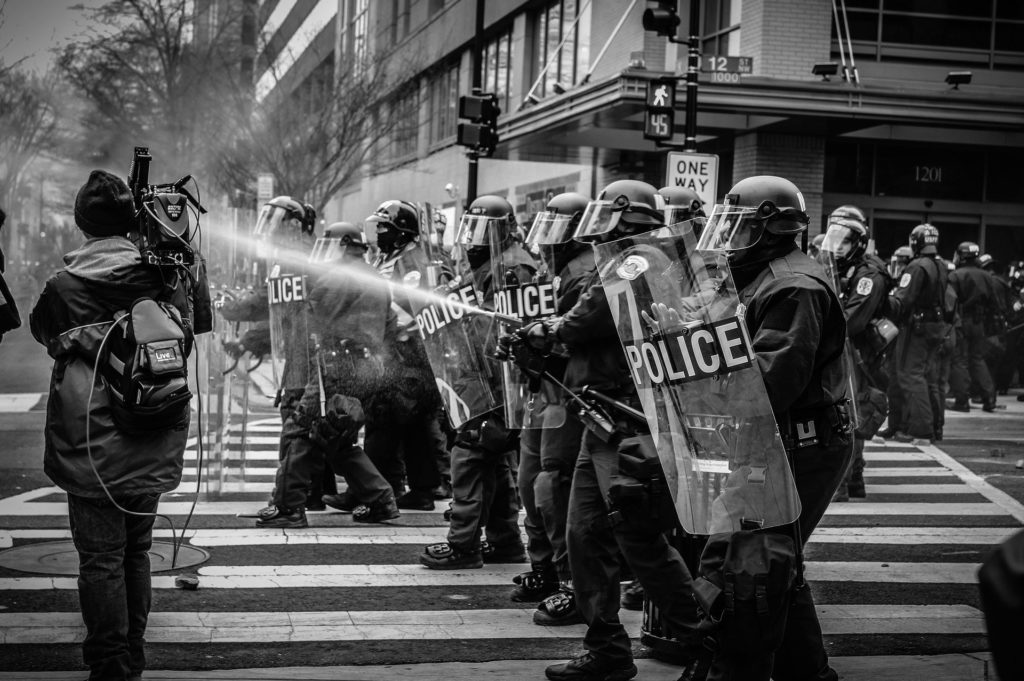
What are the police allowed to do during a protest?
The first job of the police is to protect your right to peacefully assemble — both they and public officials have taken a vow to uphold the Constitution. If you are acting reasonably, within the confines of the law, then they have no authority to act against you or restrain you in any way. However, they are also charged with maintaining order and upholding the law, so if protesters or infiltrators start being violent or causing damage then the police will most likely take action. The concern for all of us is what form that action takes and whether it is proportionate to the public policy and/or legal justifications permitted under the law.
The main priority of police should be to de-escalate violence, but it has been shown time and again that the police often are the cause of violence. For example, if they start dropping tear gas canisters and firing rubber bullets at peaceful protesters before curfew has started, and without any legal and/or legitimate purpose, then they could be found liable for use of excessive force. This is one of the times when it is important to always be recording police on your phone.
What should I do if the police stop me or if I get arrested?
First of all, it’s always good to stay calm. Remember that sometimes the police just want to ask a question and you may not be suspected of doing anything wrong. The law permits police to ask questions without converting the contact into a seizure. Second, get your phone out and start recording. Finally, you always have the right to ask the police if you are being detained and/or free to go. If they indicate you are not being detained or are free to go, just calmly leave — you are under no obligation to speak to them. If they detain you, you have the right to ask why you are being detained.
If you are arrested or detained — whether justified or not — it’s best to remain calm and not resist. If other people are there, ask them to record everything they can. You do not have to speak to the police if you don’t want to — you have the right to remain silent. After you are booked, you will have the right to make a phone call so it’s a good idea to write a few numbers on your arm since your phone will be taken away. And it’s always a good idea to call a lawyer because while that conversation is privileged, the police do have the authority to listen in on calls to friends or family.
What should I do if I feel my rights were violated at a protest?
If you truly feel your rights were violated, the first step is always to gather evidence to support you. You have the right to sue for the violation of your rights and you should contact a civil rights attorney devoted to your rights. 42 U.S.C. Section 1983 of federal law permits those who are violated by official government actors (such as police) to seek redress in federal court. However, police officers are also covered by qualified immunity, which means they are shielded from civil liability if they didn’t break a clearly established law. That is one reason it is so important to record any interaction with the police as many of them are still not required to wear body cameras. Recordings remove much of the grey area of “he said, she said” when courts are charged with determining who is telling the truth. Video doesn’t lie.
We are here to help with protecting your Constitutional right to protest
If you have experienced problems with your civil rights being violated during a protest, please give us a call. We work diligently to protect constitutional rights. For a free, no-obligation consultation with the Civil Rights Litigation Group, contact our Denver CO law firm today at (720) 515-6165 or use our online contact form.
Jul 31, 2018 | Civil Rights Law, Police Misconduct
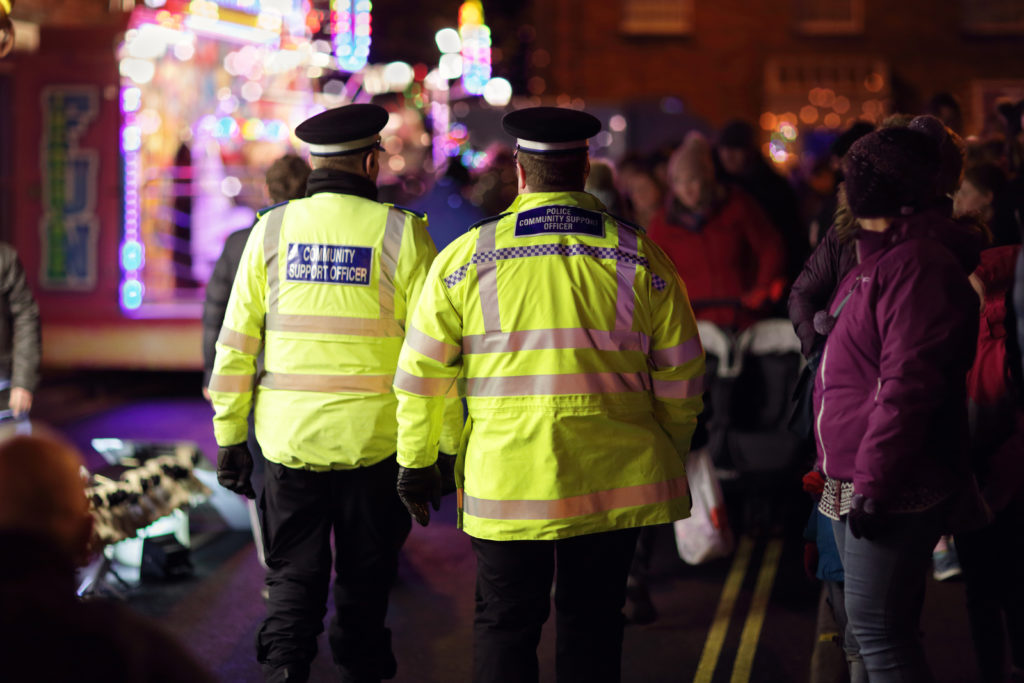
As a diverse and progressive city, Denver has a lot going for it. One of the more welcoming cities in the west, there are friendly people and something for just about everyone, including the LGBT community.
But the dark side of Denver involves something not so welcoming: police brutality.
Most police officers do their job every day, and no one ever hears about them. Unfortunately, there are more than a few “bad apples” that give everyone in law enforcement a bad name.
What is police brutality?
When a police officer (or multiple officers) use more physical force than necessary to respond and control a situation. This can include physical force on handcuffed or otherwise restrained individuals, unnecessarily injuring someone in their custody, as well as firing a weapon when unneeded. Police brutality can take a number of different forms and includes any improper or illegal activities connected with official duty.
Denver law enforcement officers have a sworn duty to protect all individuals from any constitutional violations that another law enforcement officer may inflict on an individual in their custody (or anyone else.) If a law enforcement officer witnesses another officer violating a private citizen’s constitutional rights, he or she may be guilty of failing to get involved.
The first step: Take care of yourself first
If you’re injured after an interaction with the police and believe you are the victim of police brutality, take these steps to get started on filing your complaint
- Get medical attention
- Photograph and document your injuries
- Write down everything, in as much detail as you can
- Are there witnesses? Get statements and any video or other recordings they may have of the incident
- ·Gather any other evidence that you may have, and keep it in a safe place, i.e., damaged clothing, cell phone, etc.
The second step: Filing a complaint
Reporting police brutality is the first step in doing something about it. The Denver Police Department website has a contact form that one can file their complaint immediately.
The Colorado Division of Civil Rights, which includes the Civil Rights Commission, has an entire website of information and resources to help you file a complaint. The DCR also offers alternative dispute resolution (also known as “mediation”) to assist with resolving conflicts and potentially avoiding court hearing and litigation.
The American Civil Liberties Union (ACLU) also offers helpful information on their website about dealing with law enforcement. They may also be able to offer limited legal assistance for your case.
You should also contact an attorney who specializes in civil rights violations to help you file your complaints and pursue justice.
Police brutality is against the law
The police do not have the right to deny you the constitutional rights you have. If the police have violated your rights (or even caused injuries), we’re here to help you recover for your damages, help you heal from any injuries and make sure justice is rendered. A civil rights attorney will aggressively defend you in court and fight for your rights, and if necessary, clear your name.
If you or a loved one are the victims of police brutality or other law enforcement abuses, call the Civil Rights Litigation Group at (720) 515-6165 or use our online contact form. Schedule your free consultation with a Denver discrimination attorney today.
Oct 3, 2017 | Civil Rights Law, Police Misconduct
Situation #1:
A police officer has just taken you into custody. You haven’t done anything wrong, but he or she is reading your Miranda rights to you while putting you in handcuffs. Has the officer explained the charges? Do they have probable cause for arrest or is it wrongful arrest? What evidence do they have to hold you?
Situation #2:
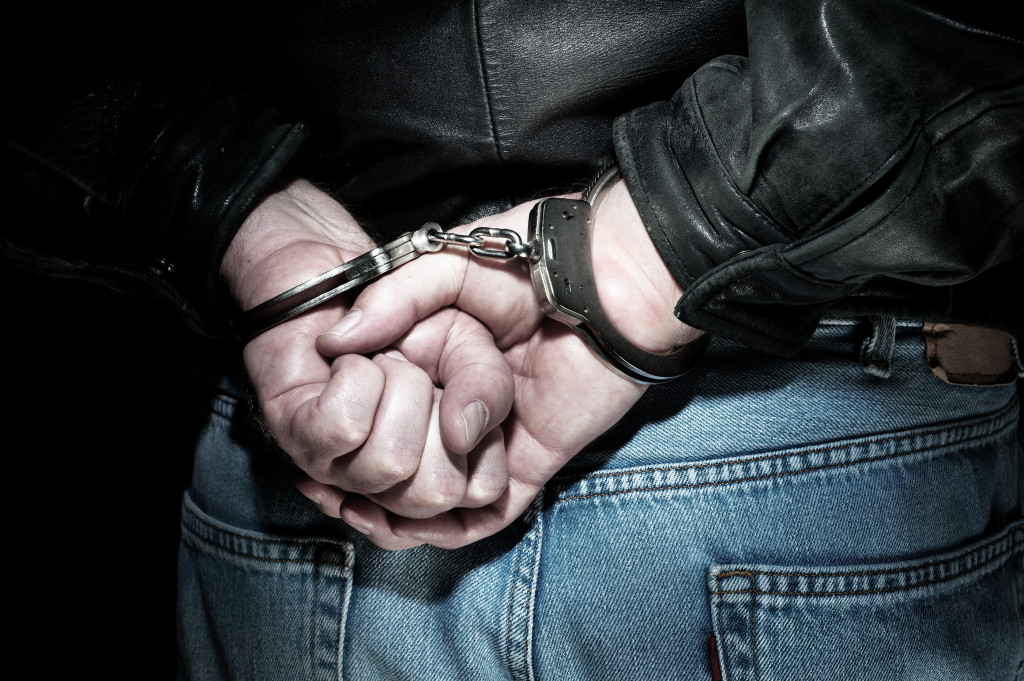 You’re in a shop, or somewhere out in public, and suddenly you’re not free to leave. Someone shouts, “citizens’ arrest!” Maybe there is more than one individual restricting you from leaving. You’ve done nothing wrong, but now you’ve found yourself in an arrest situation, and the police are on their way.
You’re in a shop, or somewhere out in public, and suddenly you’re not free to leave. Someone shouts, “citizens’ arrest!” Maybe there is more than one individual restricting you from leaving. You’ve done nothing wrong, but now you’ve found yourself in an arrest situation, and the police are on their way.
This scenario is typically seen in retail shops where an owner or employee believes that someone has been shoplifting. A citizen can only hold an individual until the police arrive, or to give them an opportunity to recover stolen merchandise from a suspected thief. But again, you know you’ve done nothing wrong and haven’t stolen anything.
What is a wrongful arrest?
Wrongful arrest, also called false arrest, means unlawfully confining an individual against their will by someone who does not have legal authority to do so. If there is no legal cause to hold an individual, such as a warrant for their arrest, suspicion or probable cause, the arrest can be called wrongful if they are not free to leave. While this isn’t hard-and-fast law, it covers a broad range of improper confinements.
Wrongful arrest or false arrest is an intentional tort, and is a civil rights violation. That is, the individual committing the arrest willfully intended to deprive someone of their Fourth Amendment rights, which protects you from illegal searches and seizures. While the police do make mistakes, it may be up to you as the defendant to prove that you were wronged and clear your name in court.
What next?
Wrongful arrests happen, even under the best of conditions, and will catch you unaware. Don’t let it ruin your life. What you do next can determine the final outcome, good or bad. In this situation, you should:
- Don’t resist the arrest, particularly one involving a police officer. Resisting an unlawful or wrongful arrest isn’t a good idea, even though it is legal in some places. You can still be charged with resisting arrest, even if you can prove later that the original arrest was unlawful.
- Find a civil rights attorney. Now. The sooner you get legal representation, the faster you can clear your name. He or she can help you avoid mistakes made under difficult, confusing conditions.
- Exercise your right to remain silent. An attorney should be present anytime you speak to authorities. He or she will ensure that you have proper representation, treated fairly, your rights are respected, and guide you through the process.
- Politely decline any searches that don’t come with a warrant. The police are required to follow a set of rules with a warranted search, but without one, there may not be rules.
- Keep track of all correspondence and conversations. Phone calls, emails, letters and other interactions may lead to evidence that proves your innocence.
- Pursue legal action for compensation. Your attorney can advise you on filing a civil rights lawsuit to compensate you for physical pain, mental anguish and embarrassment.
A civil rights attorney can help
A wrongful arrest brands you a criminal, and has far-reaching effects that can damage your good name. An experienced civil rights attorney can examine the facts of your case, determine if you have one, and advise you on the next steps. He or she can determine if you have a good case for wrongful arrest, and what it will take to bring disciplinary action, if the police are involved, or a civil rights lawsuit against individuals.
If you believe you’ve been wrongfully arrested, or that your civil rights have been violated, call the Civil Rights Litigation Group at (720) 515-6165. Schedule your free consultation with us today. We’ll help you fight back and help you clear your name.





 The most important thing to remember is that the First Amendment guarantees every person in America the right to peacefully assemble and protest.
The most important thing to remember is that the First Amendment guarantees every person in America the right to peacefully assemble and protest.


 You’re in a shop, or somewhere out in public, and suddenly you’re not free to leave. Someone shouts, “citizens’ arrest!” Maybe there is more than one individual restricting you from leaving. You’ve done nothing wrong, but now you’ve found yourself in an arrest situation, and the police are on their way.
You’re in a shop, or somewhere out in public, and suddenly you’re not free to leave. Someone shouts, “citizens’ arrest!” Maybe there is more than one individual restricting you from leaving. You’ve done nothing wrong, but now you’ve found yourself in an arrest situation, and the police are on their way.